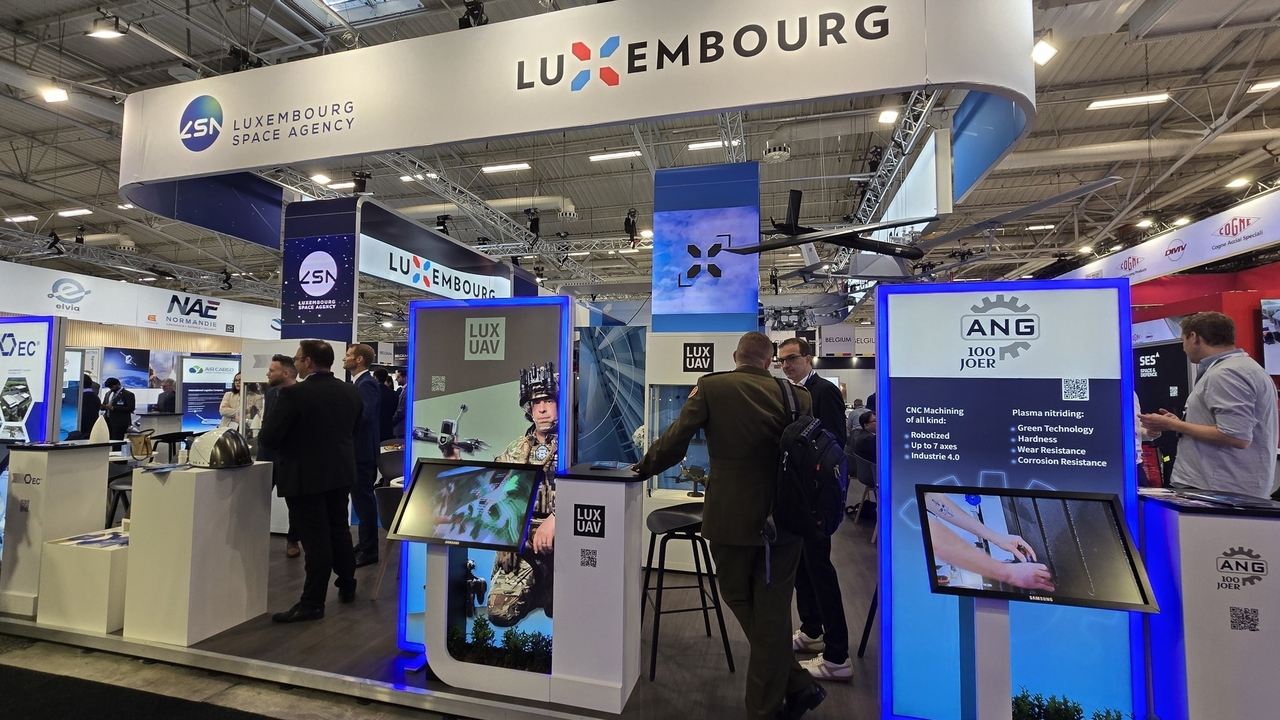At the Paris Air and Space Show, Luxembourg showcased its ambition to contribute more to European defence by repurposing its civil high-tech and space sector expertise for military use, with local companies like HITEC, Gradel, and LIST playing key roles in dual-use technology development.
This ambition was not only clearly voiced at the Paris Air and Space Show at Le Bourget on the political level, but also echoed by the industry, which is intensifying its efforts. The shared vision among stakeholders is to leverage expertise from the civil high-tech sector for military purposes.
Read also: Xavier Bettel and Yuriko Backes unveil strengthened push into defence innovation
HITEC Luxembourg, a company which has long been active in the satellite field, sees itself as a natural partner for defence-related communication systems. According to CEO Philippe Osch, the firm is developing optical antennas that use laser-based connections between ground and satellite, enabling greater bandwidth and supporting sensitive applications such as quantum encryption or satellite surveillance in orbit.
Gradel, originally a supplier of equipment for nuclear facilities, is now a key player in the space sector. Through its own GRAM technology (Gradel Roving Additive Manufacturing), the company can produce ultra-light structures that are useful in drones, the automotive industry, and military applications.
CEO Marco Marques emphasised that Europe must accelerate production – not only with new machinery but also through know-how and specialised training. Gradel plans to take an active role in this shift, using its local expertise, manufacturing base, and highly skilled workforce in Luxembourg.
The Luxembourg Institute of Science and Technology (LIST) is also contributing through the development of composite materials suitable for a range of sectors including automotive, aerospace, and defence. According to LIST’s Thierry Girot, these materials can be made lighter, more impact-resistant, and capable of providing protective properties. As part of both national and European defence initiatives, LIST collaborates with other Luxembourg companies such as Gradel and Eurocomposite.
What unites these various actors is their ambition to more systematically channel the skills and technologies developed in the civil high-tech and space industries into defence. This goal, however, depends heavily on political will, strategic investment, and increased visibility on the international stage.
Major events like Le Bourget offer a valuable platform in this regard. As HITEC’s CEO noted, shared visibility is crucial, particularly for small and medium-sized enterprises that risk being overshadowed by the sector’s larger players.
